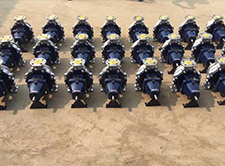Rwandese
- Afrikaans
- Albanian
- Amharic
- Arabic
- Armenian
- Azerbaijani
- Basque
- Belarusian
- Bengali
- Bosnian
- Bulgarian
- Catalan
- Cebuano
- Corsican
- Croatian
- Czech
- Danish
- Dutch
- English
- Esperanto
- Estonian
- Finnish
- French
- Frisian
- Galician
- Georgian
- German
- Greek
- Gujarati
- Haitian Creole
- hausa
- hawaiian
- Hebrew
- Hindi
- Miao
- Hungarian
- Icelandic
- igbo
- Indonesian
- irish
- Italian
- Japanese
- Javanese
- Kannada
- kazakh
- Khmer
- Rwandese
- Korean
- Kurdish
- Kyrgyz
- Lao
- Latin
- Latvian
- Lithuanian
- Luxembourgish
- Macedonian
- Malgashi
- Malay
- Malayalam
- Maltese
- Maori
- Marathi
- Mongolian
- Myanmar
- Nepali
- Norwegian
- Norwegian
- Occitan
- Pashto
- Persian
- Polish
- Portuguese
- Punjabi
- Romanian
- Russian
- Samoan
- Scottish Gaelic
- Serbian
- Sesotho
- Shona
- Sindhi
- Sinhala
- Slovak
- Slovenian
- Somali
- Spanish
- Sundanese
- Swahili
- Swedish
- Tagalog
- Tajik
- Tamil
- Tatar
- Telugu
- Thai
- Turkish
- Turkmen
- Ukrainian
- Urdu
- Uighur
- Uzbek
- Vietnamese
- Welsh
- Bantu
- Yiddish
- Yoruba
- Zulu
Telephone: +86 13120555503
Email: frank@cypump.com
Nov . 21, 2024 03:14 Back to list
'efficient supply of non-leakage chemical centrifugal pumps ...'
Efficient Supply of Non-Leakage Chemical Centrifugal Pumps
In the modern industrial landscape, the efficient management of chemical processes is paramount. One of the key components that ensure a seamless operation in chemical manufacturing and processing is the chemical pump. Among various types of pumps available, non-leakage centrifugal pumps stand out for their reliability, efficiency, and safety, particularly in handling hazardous chemicals. This article delves into the importance of efficiently supplying non-leakage chemical centrifugal pumps, exploring their features, applications, and the benefits they bring to industrial processes.
Understanding Non-Leakage Chemical Centrifugal Pumps
Centrifugal pumps are mechanical devices designed to move fluids by converting rotational kinetic energy to hydrodynamic energy. Non-leakage centrifugal pumps are specifically engineered to prevent the unintentional release of liquids, particularly volatile or toxic chemicals, into the environment. This is achieved through advanced sealing technologies, such as magnetic seals or double mechanical seals, which create barriers that eliminate leakage points.
These pumps are essential in industries where the integrity of the fluid being processed is critical. The design of non-leakage pumps helps in safeguarding not only the equipment but also the health of workers and the environment from potentially harmful chemical spills.
Applications Across Industries
Non-leakage chemical centrifugal pumps find applications in a myriad of sectors, including petrochemicals, pharmaceuticals, food and beverage, water treatment, and wastewater management
. Each of these industries has specific requirements, and the flexibility of centrifugal pumps ensures they can adapt to various fluid properties, including viscosity and corrosiveness.In the petrochemical industry, for instance, these pumps are utilized for transporting crude oil, refined products, and chemicals. Their reliability minimizes downtime and maintenance costs. In pharmaceuticals, where precision and contamination prevention are critical, non-leakage pumps ensure that active ingredients are delivered safely without exposure to external contaminants.
'efficient supply of non-leakage chemical centrifugal pumps ...'

Moreover, in the water treatment sector, these pumps help in the efficient transfer of chemicals used in purification processes. Their non-leakage design critically reduces the risk of chemical accidents, contributing to safer operational environments.
Benefits of Efficient Supply
The efficient supply of non-leakage chemical centrifugal pumps is crucial for several reasons. Firstly, these pumps enhance operational efficiency. With their ability to handle various flow rates and pressures, industries can optimize their processes, leading to improved productivity.
Secondly, they contribute to safety and environmental protection. By limiting the risk of leaks, these pumps help in maintaining regulatory compliance and minimizing the potential for chemical spills, which can have dire consequences on ecosystems and community safety. This aspect not only protects the environment but also reduces liability for businesses.
Additionally, the longevity and durability of non-leakage pumps mean lower maintenance costs over time. Efficient supply chains ensure that industries can access high-quality pumps that are reliable and possess a longer service life. This not only streamlines maintenance schedules but also reduces overall operational expenses.
Conclusion
The efficient supply of non-leakage chemical centrifugal pumps is vital in ensuring the safe and effective handling of chemicals across various industries. As industries continue to evolve, the demand for reliable, efficient, and environmentally friendly pumping solutions will only increase. Companies that prioritize the use of non-leakage centrifugal pumps can expect to enhance their operational efficiency while also safeguarding the environment and adhering to safety regulations. Ultimately, investing in these advanced pumping solutions is not just a matter of operational necessity; it is a commitment to sustainable practices and the well-being of society at large.
-
Reliable Non-Clog Sewage Pumps with GPT-4-Turbo Tech
NewsAug.04,2025
-
High-Performance Air Pumps for Sand & Gravel | Efficient Transport
NewsAug.03,2025
-
ISG Series Vertical Pipeline Pump - Chi Yuan Pumps Co., LTD.|Energy Efficiency, Corrosion Resistance
NewsAug.03,2025
-
ISG Series Pipeline Pump - Chi Yuan Pumps | Energy Efficiency&Compact Design
NewsAug.03,2025
-
ISG Series Vertical Pipeline Pump - Chi Yuan Pumps Co., LTD.|High Efficiency, Low Noise, Durable
NewsAug.02,2025
-
ISG Series Vertical Pipeline Pump - Chi Yuan Pumps | High Efficiency, Low Noise
NewsAug.02,2025










